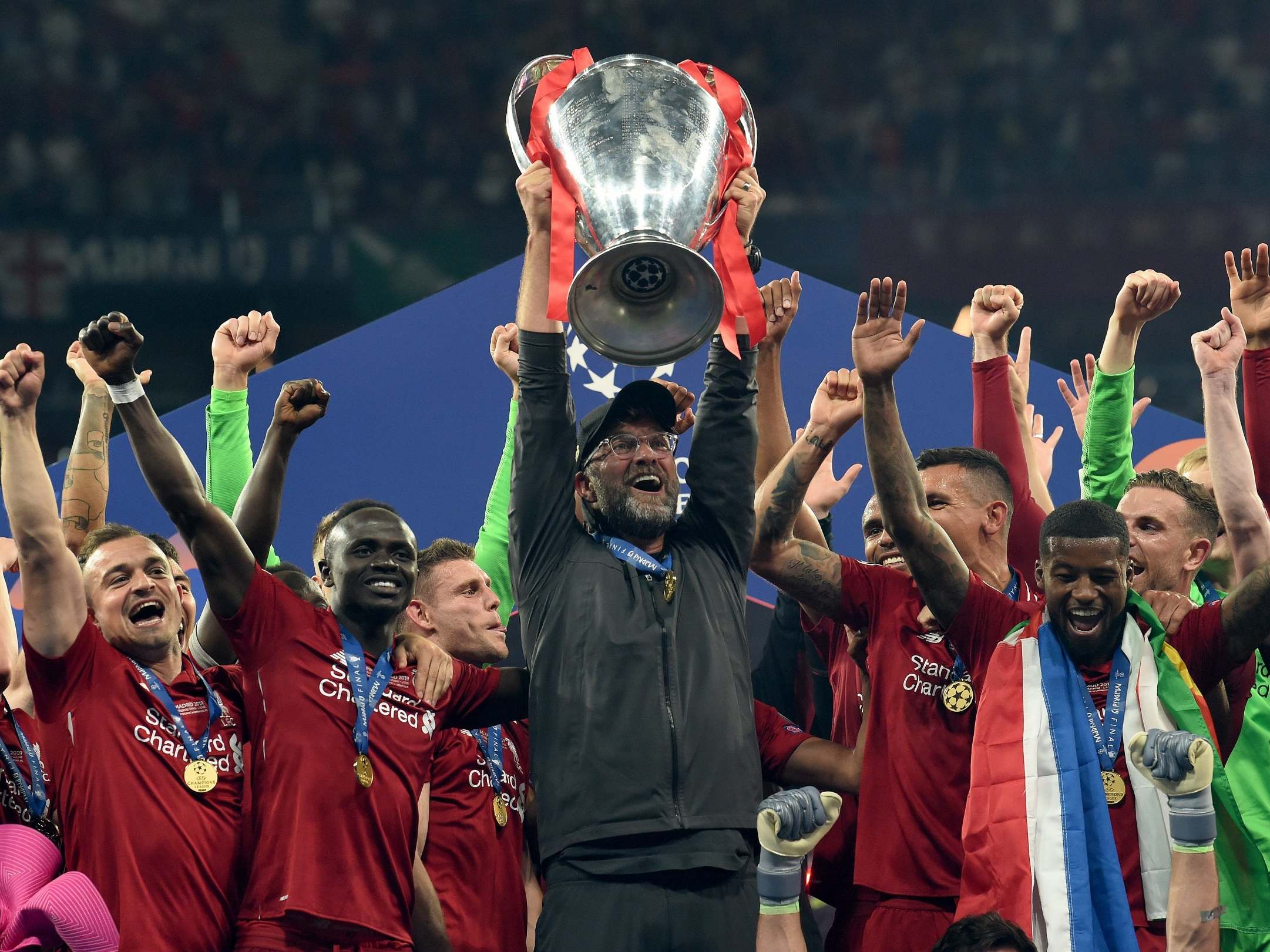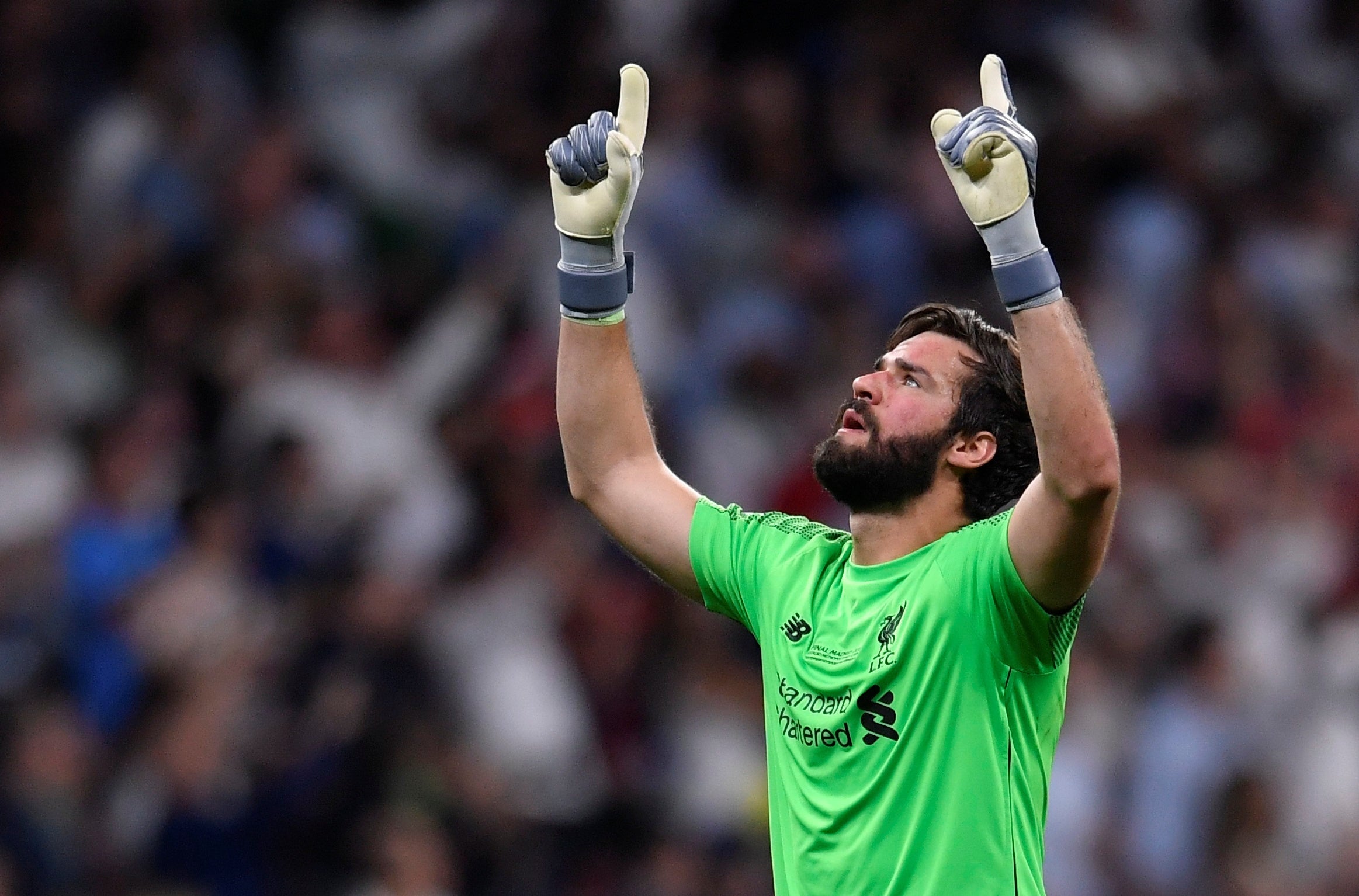Champions League final: Liverpool’s European victory was years in the making – for both club and manager
Every setback over the last few years served a greater purpose, helping to shape this team into the one they are today

Your support helps us to tell the story
From reproductive rights to climate change to Big Tech, The Independent is on the ground when the story is developing. Whether it's investigating the financials of Elon Musk's pro-Trump PAC or producing our latest documentary, 'The A Word', which shines a light on the American women fighting for reproductive rights, we know how important it is to parse out the facts from the messaging.
At such a critical moment in US history, we need reporters on the ground. Your donation allows us to keep sending journalists to speak to both sides of the story.
The Independent is trusted by Americans across the entire political spectrum. And unlike many other quality news outlets, we choose not to lock Americans out of our reporting and analysis with paywalls. We believe quality journalism should be available to everyone, paid for by those who can afford it.
Your support makes all the difference.As the jubilant Liverpool players left the Wanda Metropolitano, many had a different hair colour, having sprayed their heads red.
Some of them were shouting as Trent Alexander-Arnold let the mixed zone know “this feels so fucking good”. They were letting it all out.
So was the manager. Jurgen Klopp admitted he cried on the pitch.
You wouldn’t have guessed it by the time he came in for his press conference. He was of course beaming, but spoke in a slightly detached way, illustrating that this naturally hadn’t sunk in yet.
How could it? There was so much to take in, not least all the times he was in this situation as a loser.
Here he was, a winner. A champion. A European champion. For the first time in his career – third-time lucky in a Champions League final.
Except he would of course argue against the idea of luck, just as he did when it was put to him on the eve of this match that his career had been unlucky.
Klopp would just point to all the other aspects that make up football, and management, and how the judgements that come from finals can often be far too binary.
“The rest, all of that about winning and losing, is for the outside world,” he had said on Friday.
And yet by Saturday night – or, really, very early Sunday morning – he did seem to admit that all those final defeats did have an internal effect.
“I feel best for my family,” Klopp admitted. “The last few times we went on holiday with a silver medal, and that’s not too cool.”
If it feels odd to reflect on what so many defeats have meant to him after a victory like that, it’s actually all the more important because of what defeat here would have represented.
This was a genuinely crucial win, and not just so that a season as sensational as this actually had some success, and a greater meaning.
Liverpool’s league performance indicated this was arguably the first time in all of Klopp’s last seven finals where he unquestionably had the better side, so a loss couldn’t have just been explained away in the same way. It would have made that record a proper problem. It would have become a defined dynamic, maybe even a complex. A genuine neurosis might have developed, of the same manner that has afflicted Benfica in the 57 years since their last victory in a European final.

It also would have ensured that the accusations of ‘loser’ were a lot more difficult to argue against, not to mention the potential tag of ‘Neverpool’.
All of that is forever banished now, swept away with the very lifting of the trophy.
And it was those very defeats that were a factor in this victory.
Liverpool have become the third side in European Cup history to lose a final and then come back the following year and win it, after AC Milan 1993-94 and Bayern Munich 2012-13, displaying supreme resolve.
The experience clearly aided them against a more naive-looking Tottenham, but so did the exacting consequences of that defeat in Kyiv to Real Madrid. Klopp went out and made sure the club completed the signing of Alisson Becker, after Loris Karius’s nightmare performance.
It was one of a few ways the German so forensically and greatly improved the team, and that is most evident in the defence.
Because of the utter reliability of Alisson – who made some strong saves – and the supreme assurance of Virgil van Dijk, it meant Liverpool were content to sit on their backline, to play the game out in a canny if somewhat unexciting manner.

It really was that simple, even if the fortuitous early penalty did it make it a little easier for them: Liverpool were just able to rely on such qualities, because they had more quality than Tottenham. They’d been gradually honed to this, every setback over the last few years actually serving a greater purpose, and this better team.
That’s what it came down to.
“I don’t want to explain why we won it,” Klopp said, when asked about the tactics of the game. “I just want to enjoy that we won it.”
He finally gets to do that. He finally gets to enjoy a Champions League win. Every previous defeat making it all the sweeter. Klopp might not necessarily admit that, but the reactions said it all.
Join our commenting forum
Join thought-provoking conversations, follow other Independent readers and see their replies
Comments